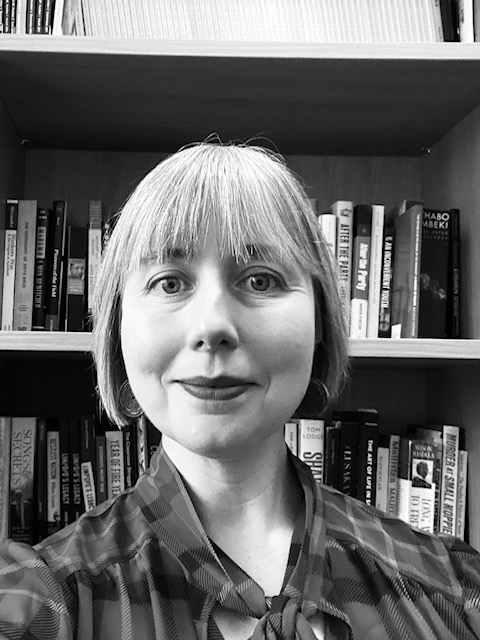Anne Heffernan
Anne Heffernan is Associate Professor of Southern African History at Durham University where she specialises in the history of South Africa in the twentieth century. Anne’s work has looked at student protest and political movements as part of South Africa’s struggle against apartheid, at the relationship of liberation groups and youth activists to the post-apartheid state, and at connections between urban and rural parts of the country linked by networks of young people. She has published on these themes in a variety of journals and in her monograph, Limpopo’s Legacy: Student Politics and Democracy in South Africa (Boydell & Brewer, 2019). More recently she has begun to research the roots and enduring legacy of higher education under apartheid and how this shapes the higher education landscape in South Africa today, with a particular focus on historically black universities (sometimes also called historically disadvantaged institutions).
While at Glasgow I will be undertaking research in the University’s Archives on three alumnae who graduated in the early 20th century. These women, Mabel Atkinson Palmer, Florence MacDonald, and Elizabeth Sneddon, were instrumental in founding and staffing the University of Natal’s ‘Non-European’ Section (NES), the first full scale effort by a segregated ‘white’ university in South Africa to offer university-level classes to black students. The programme ran from 1936 – 1957, when it was supplanted by the apartheid state’s institution of racially and ethnically segregated universities. But for the two decades it operated, this Natal ‘experiment’, as it was sometimes called, provided a limited space for the higher education of some black and Indian South Africans. Contestation over its integration into the University of Natal, which provided scant support for the programme and insisted it operate under principles of segregation, offers a lens into debates around race and education in South Africa before the advent of formal apartheid. The role of a range of domestic and international actors in these debates also makes it a fascinating case for understanding some of the afterlives of empire as these played out in South Africa in the mid-twentieth century. My research in Glasgow will seek to understand how these three women’s own university education and experience of social projects like the Queen Margaret Settlement Association shaped their later experience of founding the NES.
The project relates to my work on the segregation of higher education in South Africa by illuminating important influences on the structure of South African higher education in the period just before the 1948 election of the National Party and the implementation of apartheid. It also contributes to a wider historiography that has emphasized points of continuity and conjuncture between the apartheid state and its colonial predecessors. By looking at the role of influential British migrants, like Palmer, Sneddon and MacDonald, this research will consider the ways liberal political networks in the late imperial period interacted with racial divisions and racist hierarchies on the ground in South Africa. The NES was, at its core, both pioneering and also deeply paternalist in its approach to education. Understanding the influences and backgrounds of those who created it has the potential to extend our understanding of both South African higher education in the mid-20th century, and transnational educational networks in the preceding decades.


